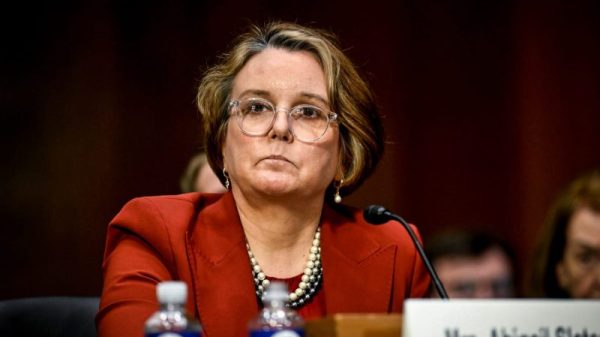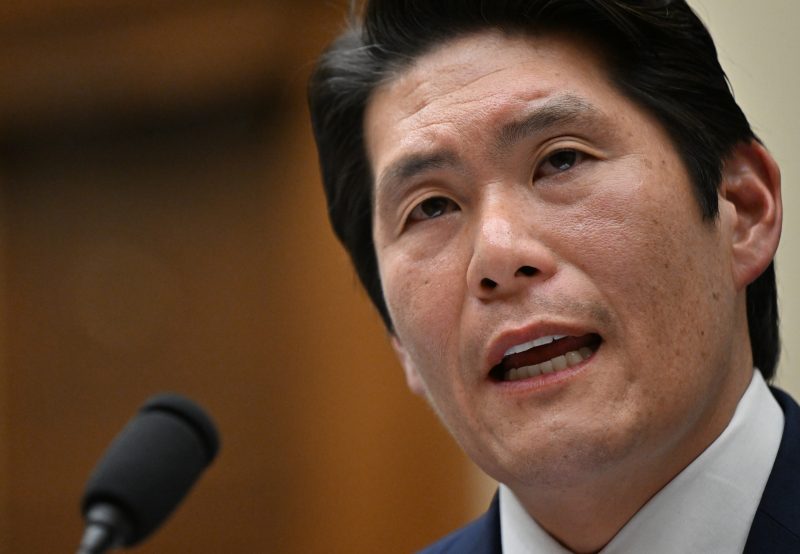The House Judiciary Committee spent more than four hours Tuesday grilling former special counsel Robert K. Hur about his decision not to seek charges against President Biden over classified papers found in Biden’s home and office.
Like other special counsel hearings in recent years, this one was widely anticipated — but failed to generate much in the way of fresh answers or evidence.
Here are key takeaways.
This was Hur’s most memorable statement, in no small part because so many of his other answers were forgettable. The prosecutor’s declaration came in an exchange with Jayapal, who argued that Hur did, in fact, exonerate the president. Hur took issue with that.
As a general matter, prosecutors are often loath to publicly exonerate someone they investigated. In Hur’s case, he said he found some evidence of willful mishandling of classified information by Biden, but not enough evidence to prove it to a jury beyond a reasonable doubt. Critical legal distinctions like that rarely fare well in congressional hearings.
Hur’s declaration had echoes of a past special counsel, Robert S. Mueller III, who made a similar point after closing his investigation of Donald Trump: that he was not exonerating the president.
The arrival of a special counsel in Washington is exciting — Democrats and Republicans parade through news coverage, reveling in months or even years of investigation, speculation and recrimination. The last three special counsels, however, have left town with a proverbial “kick me” sign on their back.
On Tuesday, one of the few points of agreement between Democrats and Republicans was on their dissatisfaction with Hur’s answers, as he repeatedly insisted he would not speak beyond his report’s findings. Whether the prosecutor before the committee is Hur, Mueller or John Durham — who examined the FBI investigation into Russian interference in the 2016 election — special counsels are not exactly hostile witnesses, but neither are they particularly friendly or cooperative. Most of Hur’s answers simply referred to what was in his report.
Democrats wanted Hur to talk about why Trump’s alleged conduct with classified documents at his Mar-a-Lago home and private club was far worse than Biden’s. Republicans wanted him to admit that he believed Biden had committed crimes but couldn’t prove it. Hur largely deflected, leaving neither side satisfied.
Over more than four hours, Hur repeatedly tried to steer the questions back to the facts he uncovered and his legal reasoning for not seeking charges. The politicians weren’t having it.
Part of Hur’s explanation was that Biden’s notebooks, found in his home, were in some ways more problematic than the official government documents with classified markings — because those notebooks contained national defense information, and he read from the notebooks to his ghostwriter. But even in the case of the notebooks, Hur said, Biden had reasonable defense arguments to make, based on the practices of past presidents like Ronald Reagan, that the notebooks were his property, not the government’s.
Democrats and Republicans also agreed that the hearing about Biden’s classified documents was really about Trump’s classified documents. Democrats tried to draw Hur into going beyond his report and explain exactly why Trump’s conduct at Mar-a-Lago — for which he has been charged with illegally retaining national defense information and obstructing government efforts to retrieve it — was much more egregious than anything Biden did.
Republicans, particularly Jordan, the committee chairman, tried to get Hur to say that his findings meant Trump should also not have been charged.
Schiff dug into Hur and would not let go on the question of Hur’s decision to describe Biden as an elderly man with a poor memory. Schiff said Hur had to know that his characterization would become a political baseball bat with which to clobber the president in an election year.
Hur defended himself by insisting the report was supposed to be “confidential” according to Justice Department regulations — which is technically correct but flies in the face of recent, and very public, special counsel reports from Mueller and Durham.
Schiff gave no credence to Hur’s claim that he expected the report would be confidential, saying no prosecutor with his track record could be so naive.
Hur stuck to his guns but was not particularly convincing, all the more so since his defense was delivered while testifying before a packed congressional hearing that was being broadcast and live-streamed on multiple networks and news sites.





























